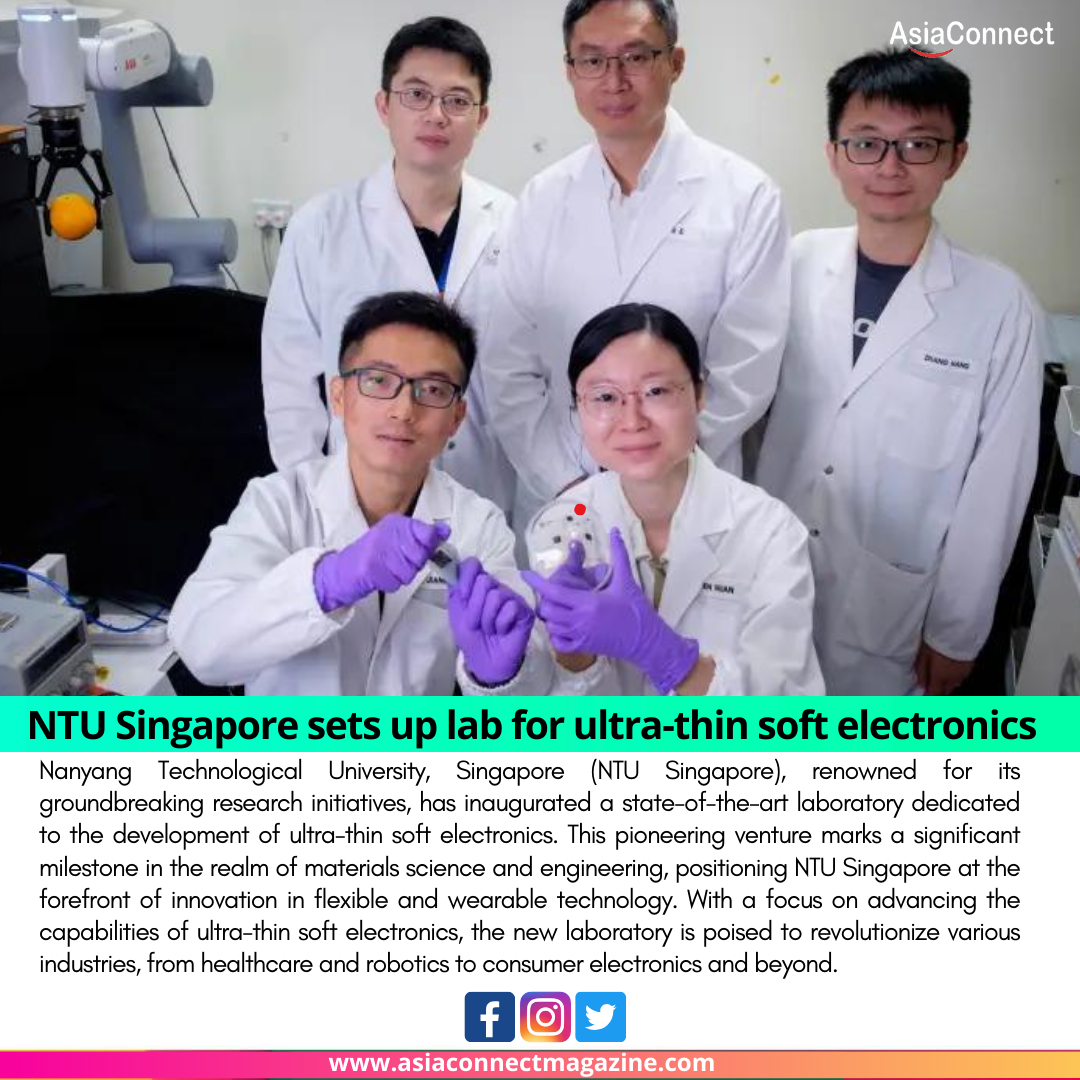Nanyang Technological University, Singapore (NTU Singapore), renowned for its groundbreaking research initiatives, has inaugurated a state-of-the-art laboratory dedicated to the development of ultra-thin soft electronics. This pioneering venture marks a significant milestone in the realm of materials science and engineering, positioning NTU Singapore at the forefront of innovation in flexible and wearable technology. With a focus on advancing the capabilities of ultra-thin soft electronics, the new laboratory is poised to revolutionize various industries, from healthcare and robotics to consumer electronics and beyond.
The establishment of the ultra-thin soft electronics lab underscores NTU Singapore’s commitment to fostering interdisciplinary research and driving technological advancements with real-world applications. As the demand for lightweight, flexible, and conformable electronic devices continues to grow, the lab’s initiatives aim to address key challenges in materials design, fabrication techniques, and device integration.
One of the primary objectives of the lab is to explore novel materials and fabrication methods for creating ultra-thin, flexible electronic components. Traditional rigid electronics are often unsuitable for applications requiring conformability and stretchability, limiting their potential in wearable devices, medical implants, and soft robotics. By leveraging advanced materials such as organic semiconductors, polymers, and nanomaterials, researchers at NTU Singapore aim to develop flexible electronic components that can withstand bending, stretching, and twisting without compromising performance.
Furthermore, the lab will focus on developing innovative manufacturing processes tailored to the unique requirements of ultra-thin soft electronics. Conventional semiconductor fabrication techniques are not directly applicable to flexible substrates, necessitating the development of alternative approaches. Through collaborative research efforts, NTU Singapore aims to establish scalable, cost-effective manufacturing methods for producing flexible electronic devices with high precision and reliability.
The applications of ultra-thin soft electronics span a wide range of fields, with significant implications for healthcare, human-machine interfaces, and smart textiles. In the healthcare sector, flexible electronic sensors and monitoring devices have the potential to revolutionize patient care by enabling continuous health monitoring, personalized diagnostics, and non-invasive treatments. Moreover, in the realm of robotics and prosthetics, soft electronics offer unprecedented opportunities for creating robots and wearable devices that can interact safely and intuitively with humans.
NTU Singapore’s investment in the ultra-thin soft electronics lab also aligns with global efforts to advance sustainability and reduce environmental impact. Flexible electronic devices consume fewer materials and energy during manufacturing compared to their rigid counterparts, making them inherently more eco-friendly. By developing sustainable electronic solutions, NTU Singapore aims to contribute to the transition towards a more circular economy and minimize the ecological footprint of consumer electronics and electronic waste.
Collaboration and knowledge exchange are fundamental principles driving the research agenda of the ultra-thin soft electronics lab at NTU Singapore. The lab serves as a hub for interdisciplinary collaboration, bringing together researchers from diverse backgrounds, including materials science, electrical engineering, chemistry, and biomedical engineering. Through partnerships with industry stakeholders and academic institutions worldwide, NTU Singapore seeks to accelerate the translation of research findings into practical applications and commercial products.
In conclusion, the establishment of the ultra-thin soft electronics lab at NTU Singapore represents a significant leap forward in the field of flexible and wearable technology. By pushing the boundaries of materials science and engineering, NTU Singapore aims to unlock new possibilities for ultra-thin soft electronics and drive innovation across industries. With its cutting-edge research capabilities and collaborative approach, NTU Singapore is poised to shape the future of electronic devices, making them more adaptable, sustainable, and seamlessly integrated into everyday life.





